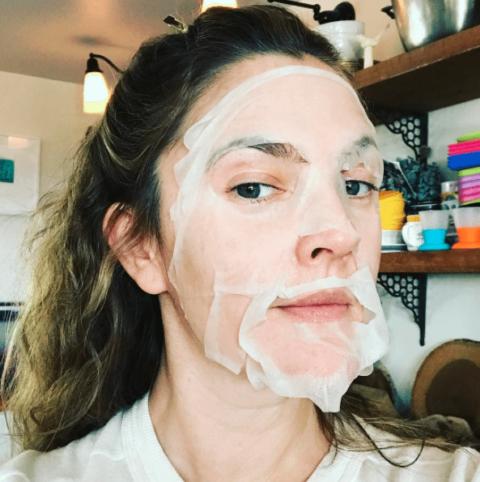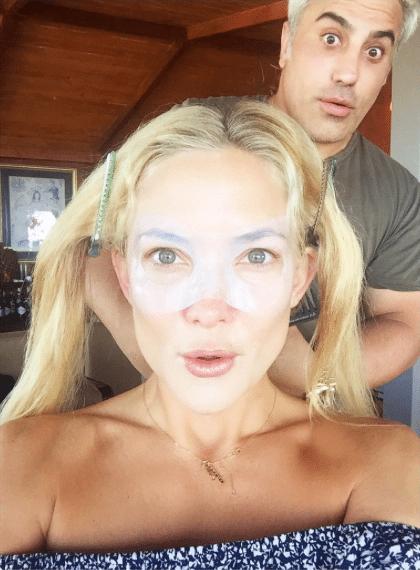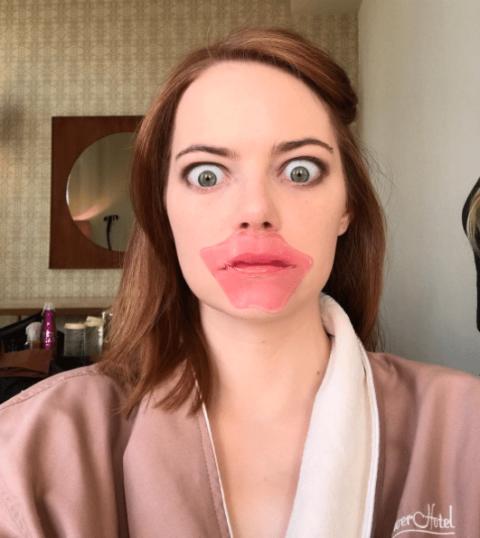Katy Perry’s Pursuit of Authenticity
Katy Perry is a pop star with a new album to promote. Katy Perry is a woman on a quest for authenticity. These two facts intersected frequently this past spring and summer, though perhaps never more acutely than on June 10, when the singer sat down with Dr. Siri Singh, psychoanalyst to the stars, for a therapy session. Over the course of an hour, Perry spoke openly about her childhood traumas (growing up Christian), her ongoing mental health struggles (depression) and her complicated relationship with her public image (her indelible connection with cupcake bikinis and artificial hair hues). What Perry really wants is to reconnect with Katheryn Hudson—the person behind the pop megabrand. “That is a little bit of why I cut my hair, because I really want to be my authentic self, like 100 per cent,” she confided to Singh, though technically nothing about the conversation was confidential; Perry’s therapy session was broadcast on YouTube as part of a 96-hour live-streaming event—a round-the-clock reality show slash personal exploration slash promotional event. #WorldWideWitness.
A couple of weeks later, the Katy Perry authenticity tour arrived at Glastonbury, a festival more commonly associated with Pitchfork music snobs than Perry’s bubble gum fan base. There, she performed a mix of classics (“Teenage Dream”!) and some of her new “purposeful pop” songs, all while dressed in a bejewelled body stocking emblazoned with a cartoonish eye. Eyes are central in the imagery of Perry’s Witness tour—a somewhat heavy-handed flick at her new-found woke-ness. So are “real experiences,” which are presumably what she was chasing when she ended her Glastonbury set by diving into the crowd. “I’ve lost my shoes in a mosh pit but found my soul,” Perry declared, sounding a lot like your aunt on Facebook. Everything about her recent authenticity quest smacks of desperation and artifice—the only real question is whether the performance is motivated by a need for acceptance or a desire to dominate.
Perry may be the most egregious recent adopter of the entity formerly known as authenticity, but she is far from being the only guilty party. Gwyneth Paltrow has consciously uncoupled from her former frosty fashion-plate persona, re-emerging as the tapas-and-margarita-loving earth mama known as Goop. Harry Styles promised rabid 1D fans that his self-titled solo album would provide a window into his “authentic” self, which is apparently what was hiding under all that hair. Chrissy Teigen—once best known as a swimsuit model and celebrity spouse—has become one of the world’s most influential women simply by being Chrissy Teigen—a hilarious, unfiltered, perfectly imperfect everywoman (who just happens to look a lot like the Sports Illustrated glamazon). Teigen tells the truth about plastic surgery, how she loves the sound of farts and how she gets bored (and tipsy) at long awards ceremonies. She never shies away from a good Twitter smack down either. Unlike Perry’s cringe-worthy escapades, Teigen is so good at being Chrissy Teigen that I will probably go to my grave unsure if her whole “one of the gals” thing is just an act.
Prime Minister Justin Trudeau has shown us the power of an authentic brand in the political realm. (So has Donald Trump, but let’s not go there just yet.) From the start, the PM’s perceived relatability has been as essential as any political policy when it comes to his global popularity: unlike so many powerful leaders, he often comes off as an unscripted, genuine guy you’d want to have a beer with—or go for a jog with, since he seems to do that a lot. The Trudeau brand took a hit last May after an image of a jogging JT photobombing a group of students along the Vancouver waterfront turned out to be a coordinated effort by the Liberal PR machine. Critics cited this as evidence of Trudeau’s manufactured populism, the irony being that in actively working to construct a sense of authenticity, Trudeau really is “just like us.”
Today, authenticity is the gold standard, and we crave it in everything—our public figures, our denim labels, our yogourt brands, our beauty products and ourselves. Research has shown that consumers get an actual rush when they perceive something as being more “real”—jam from a farmers’ market instead of a grocery store, a face cream containing real bull testicle extract. In the age of personal branding, the things we buy, whom we vote for and what mysterious concoctions we’re willing to slather on our faces reflect not only what we like but who we are—and nobody wants to be perceived as fake or try-hard. It’s all a giant crock, mind you—both because realness is not what anyone is actually going for (if it were, Instagram would look a lot more like the original Degrassi series—real people, real problems, real pimples) and because the notion that anything public-facing can even be authentic is itself kind of fraudulent.
“Real authenticity dies when we start considering how something will be received by external forces,” says Andrew Potter, author of 2010’s The Authenticity Hoax: How We Got Lost Finding Ourselves. His theory dates all the way back to the 18th century, when the original authenticity zealot, Jean-Jacques Rousseau, argued that a person can only be his or her authentic self in nature—“nature” as in outside of civilization, not a glamping trip to Coachella. In society, observed Rousseau, we wear “masks,” meaning we alter our behaviour based on the expectations of others and our own desire to gain status within that society. What constitutes the perfect mask has evolved to reflect the ideals of any given era. Back in Rousseau’s day, wigs spoke to a person’s social standing; in the 1980s, people drove tiny, impractical sports cars to convey massive bank accounts; and today, we post #IWokeUpLikeThis selfies so that everyone can marvel at our unvarnished natural beauty (as seen through the most flattering Instagram filter). “When authenticity becomes its own form of status competition, it pushes us to create it in a way that is very deliberate, but [it] actually [becomes] more and more constructed,” says Potter.
Consider the hottest beauty trend of awards season 2017, which was not bold lips or glittery eyelids but “beauty mask selfies”—behind-the-scenes snaps of celebrities like Drew Barrymore, Kate Hudson and Emma Stone in pre-makeup-prep mode. And, sure, you could read this as a refreshing repudiation of Hollywood’s impossible beauty standards, but, in reality, it is a calculated charm offensive, effective whether you’re midway through a gruel-ling Oscar campaign (Stone) or fronting a multimillion-dollar beauty/activewear brand (Barrymore and Hudson, respectively). As noted in a Vanity Fair piece titled “2016: The Year Social Media Replaced Celebrity PR,” social media has given famous people a way to connect with their fans that feels intimate, easygoing and, of course, authentic. And it has given regular people a platform on which to behave like celebrities.
In his new book Everybody Lies, former Google data scientist Seth Stephens-Davidowitz exposes the deceptiveness of social media culture with good old-fashioned data. On social media, women are endlessly going on about how their partners are “the best,” “[their] best friend” and “so cute,” whereas on Google, they want to know why their husbands are “mean,” “a jerk” or “gay.” About the same number of people stay at the five-star Bellagio in Las Vegas as the budget-friendly Circus Circus, but the former gets a lot more Facebook check-ins. On Instagram, everyone is busy giving #zerofucks, #DGAF and #shorthairdontcare when, in fact, the exact opposite is true. “I think the number one thing we can learn from studying our Google searches is just how much everybody cares,” says Stephens-Davidowitz. “People want to know if they’re normal and how they fit into the places they want to fit.” Rousseau may have seen something genuine in an individual without social constraints, but, 300 years later, taking time to consider how other people perceive us is probably the most authentically human activity any of us can engage in. And that in itself is not a bad thing.
“We say we admire people who are more authentic, but look at Donald Trump,” says Potter, pointing out the essential role of perceived realness in Trump’s defeat of the more robotic Hillary Clinton. “What if you’re authentically an asshole?” The consideration of how our actions affect, and will be perceived by, others has stopped more than a few people from running out on their grocery bill or even from defecating in the streets. More importantly, it is essential to our understanding of civil rights, social justice and taking in the world outside our own personal interests.
Back at Glastonbury, somewhere between taking the stage and losing her shoes, Perry asked the audience if performing at a hipster-approved festival had finally made her “cool.” And then, as if suddenly fearing a citation from the zero-fucks police, she backtracked, proclaiming, “But what is cool?” and “Who cares?”
The answer: Well, obviously you do, Katy Perry. That’s probably OK. And it’s definitely authentic.
The post Katy Perry’s Pursuit of Authenticity appeared first on FASHION Magazine.


